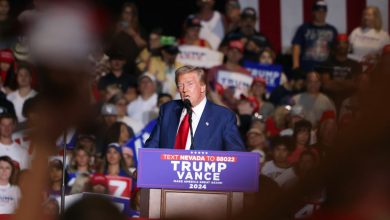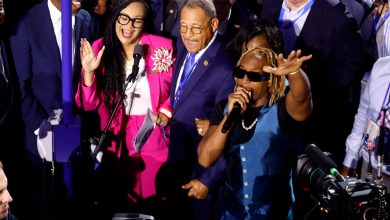Locals Oppose Jay-Z’s Casino Dream

In the heart of New York City, a bold plan to build a massive casino in Times Square has sparked heated debate among residents, business owners, and community leaders.
Gambling has always had a presence in New York City. From underground poker games in the early 20th century to the packed stands at Aqueduct and Belmont Park, betting and casino games have always been part of the city. Even without major casinos in Manhattan, people found their way to places like Atlantic City or upstate resorts to stay in the game.
But things have changed. Fewer people are visiting physical venues. Namely, online platforms have proven themselves to offer a faster, easier experience. Sweepstake casinos have especially become popular lately due to the fact that they’re free-to-play, and also offer faster payouts and better privacy. For many, the convenience of gambling from home has simply replaced the need to travel.
That shift is one reason the plan to open a casino in Times Square is facing strong local resistance. Despite promises of jobs and investment, the proposal backed by Jay-Z and his partners has been met with concern.
Residents and business owners worry that a casino in the heart of Midtown would do more harm than good, and the growing preference for online gambling only sharpens the question of whether a project like this still makes sense.
Residents in the area have pushed back strongly against the proposal, which is backed by Jay-Z through his company, Roc Nation. The project would turn a central Midtown building into a large entertainment complex, but the backlash suggests that more people are rethinking whether this kind of development still fits the city’s direction, especially as more turn to digital options for gambling.
The team behind the Times Square bid (SL Green, Caesars Entertainment, and Roc Nation) has presented the project as a transformative $5.4 billion investment. They say it would create thousands of jobs, improve safety in the area, and generate steady funding for local services. Supporters also claim it could bring more visitors to Broadway and boost surrounding businesses.
Even so, a recent independent poll suggests the public isn’t convinced. Surveying hundreds of voters living near the proposed site, researchers found that two-thirds were against the casino, and half of them were firmly opposed.
Only about a quarter supported it, with the rest undecided. These numbers haven’t shifted much, even as the developers step up public outreach and hold community meetings. The opposition remains strong and steady.
Much of the opposition comes down to concerns about how a casino could disrupt daily life in Times Square. Residents worry it would bring even more foot traffic, making it harder to get around or simply run errands.
Others are uneasy about how the overall character of the neighborhood might shift, fearing that a casino could take away from the family-friendly atmosphere that draws people to Broadway shows, public events, and seasonal celebrations. Cleanliness is also a concern. Locals question whether the added crowds would strain sanitation efforts and compromise the sense of order that keeps the area welcoming to tourists and locals alike.
Politics are closely intertwined with the debate. A congressional seat in the district is opening up, and the casino issue is quickly becoming a test. According to the same survey, nearly two-thirds of voters said they’d be less likely to support a candidate who favors the project, which is a signal that support for the casino could carry real electoral consequences.
The next step falls to a six-member advisory panel appointed by city and state leaders, including the governor and the mayor. This group will review the proposal and make a recommendation.
Public hearings have already been held, giving residents and stakeholders a chance to weigh in. Opponents, including leaders from the theater world, have been active both online and in person, handing out flyers at shows and organizing digital campaigns. Their message is clear: Times Square’s identity is rooted in culture, not casinos, and that shouldn’t change.
The development team hasn’t pulled back in the face of criticism. Instead, they’ve responded with their own polling, testimonials, and community engagement claims. They point to favorable feedback from earlier neighborhood sessions and say many residents they’ve spoken with directly are on board.
Roc Nation has made additional efforts to reframe the conversation. Most recently, they launched a program that would allow everyday New Yorkers to invest in the project directly, positioning it as a shared opportunity rather than a corporate takeover. Desiree Perez, Roc Nation’s CEO, has emphasized the years of outreach they’ve conducted with small businesses and nonprofits, describing the plan as one shaped by local input, not just top-down vision.
Still, for many New Yorkers, the question remains: why build a casino at all, especially in a place like Times Square? With digital gambling platforms now offering faster, easier access from any device, walking into a physical casino has faded. In the eyes of many, the city has already moved on.




